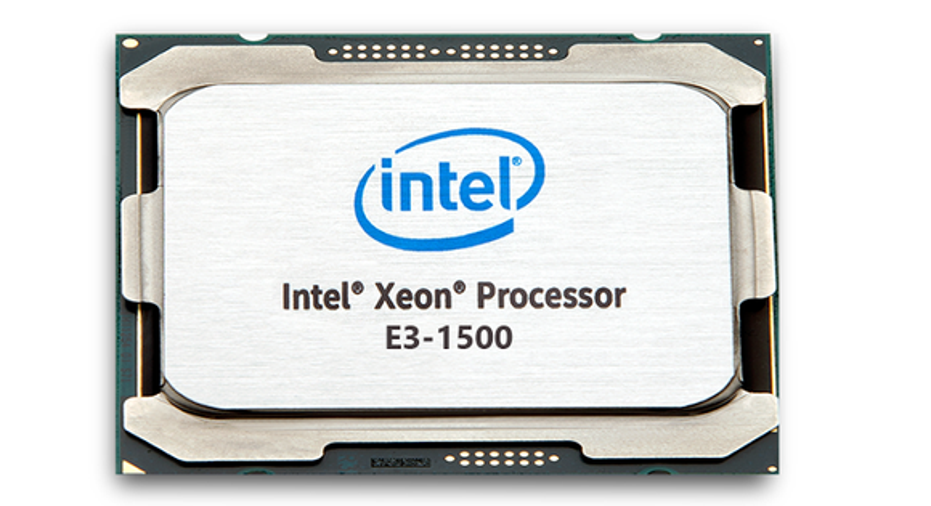Can Intel Corporation Get 10-Nanometer Server Chips Out in 2018?

Image source: Intel.
In an ideal world, microprocessor giant Intel (NASDAQ: INTC) should deliver new processors targeted at the server market at an annual clip. In some years, Intel has been able to achieve a one-year product cycle, but in others, the cycle has been more like a year-and-a-half.
As competition in the server processor market intensifies as many companies start to more aggressively go after Intel's commanding lead in the market, Intel will need to ensure that it can release new products on a tight, one-year cadence.
Intel's next server platform, known as Purley, is expected to arrive alongside the company's second generation of 14-nanometer server processors (known as Skylake-EP) during the first half of 2017. Intel's server platforms typically support two generations of processors, and the second processor on this platform is called Cannonlake-EP.
Cannonlake-EP is expected to be manufactured on the company's 10-nanometer technology, which the company says will begin volume shipments in the second half of 2017.
The question, then, is whether Intel will be able to get 10-nanometer server products out during the first half of 2018.
Why the doubt to begin with?
Intel's first 10-nanometer product family, known as Cannonlake, is expected to launch for ultra-thin notebooks and 2-in-1 devices in the second half of 2017. However, as DIGITIMES reported, the company's next-generation desktop product line that will arrive in the second half of 2017, known as Coffee Lake, will stay on 14-nanometers.
If Intel deems it necessary to keep a large portion of its personal computer product line on the more mature 14-nanometer technology rather than move it to the newer and superior 10-nanometer technology, then I have to think it's being done for cost reasons.
Now, Intel's server processors tend to be much larger and much more complex to manufacture than the company's desktop processors. So, if Intel didn't think it was economically viable to release 10-nanometer desktop products during the first half of 2018, even more complex server processors might not be in the cards, either.
A big difference between servers and desktops, though
With all of that said, it's worth noting that there's a pretty substantial difference between the market for desktop processors and the market for server processors.
The desktop processor market is a large one for Intel, but it's not really a growth business, and the company faces very limited competitive pressures there. Intel has indicated that it's running its personal computer/client businesses to maximize profitability, so transitioning to a new manufacturing technology before it's really cost-effective may not make sense.
The server chip market is different. It's a market Intel is relying on to be its core growth engine in the coming years -- and a market in which it has overwhelming dominance. However, Intel is expected to face significant competitive pressures here in the coming years. This pressure is expected to come from a number of companies, all of whom will have access to the increasingly competitive manufacturing capabilities of contract chip manufacturers like Taiwan Semiconductor Manufacturing Company (NYSE: TSM).
Moving its server product lines to newer manufacturing technologies relatively early on could lead to increased product manufacturing costs. However, those costs are likely minimal compared to the financial impact of Intel losing significant amounts of share or facing significant pricing pressure as a result of a relatively weaker product portfolio.
In short, I believe that as a result of an increasingly aggressive competitive environment, Intel is going to need to be as aggressive as possible in bringing the very best technologies to its server processors -- even if that means incurring increased manufacturing costs.
A secret billion-dollar stock opportunity The world's biggest tech company forgot to show you something, but a few Wall Street analysts and the Fool didn't miss a beat: There's a small company that's powering their brand-new gadgets and the coming revolution in technology. And we think its stock price has nearly unlimited room to run for early, in-the-know investors! To be one of them, just click here.
Ashraf Eassa owns shares of Intel. The Motley Fool recommends Intel. Try any of our Foolish newsletter services free for 30 days. We Fools may not all hold the same opinions, but we all believe that considering a diverse range of insights makes us better investors. The Motley Fool has a disclosure policy.



















